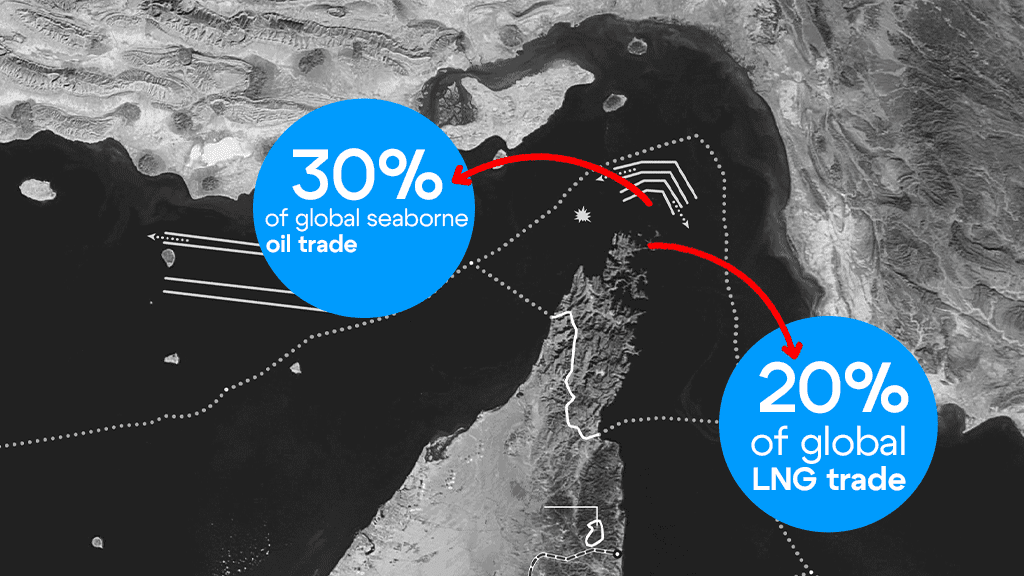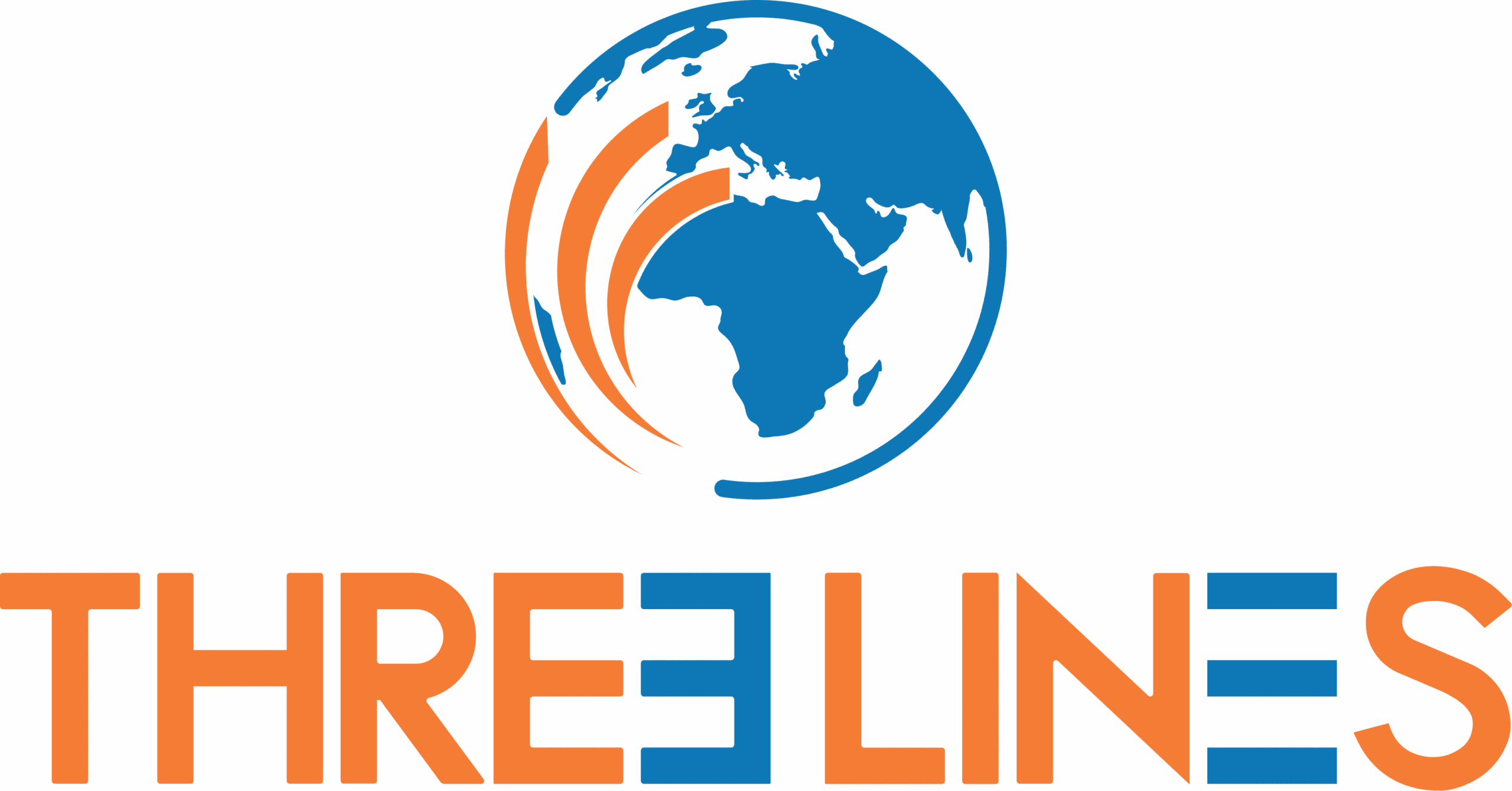The current Israel-Iran conflict has placed the Middle East back at the forefront of worldwide media attention. The fundamental changes in logistics receive equal importance to political effects and oil price movements because they will transform business operations in the region.
The global carrier risk reassessment and shipper efforts to reroute freight and reduce exposure create pressure on UAE logistics hubs although these hubs possess a unique position to guide regional operations.
Role of the Strait of Hormuz
The Strait of Hormuz stands as a geopolitical hotspot because it handles 30% percent of worldwide seaborne oil shipments, 20% percent of global LNG trade and a key container traffic hub. Geographically, it’s a narrow but strategically vital passage connecting the Persian Gulf to the Arabian Sea via the Gulf of Oman. At its most constricted point, it spans just 33 kilometers, with shipping corridors confined to 3 kilometers in either direction, underscoring how even minor disruptions can have global repercussions.
The Strait of Hormuz now faces heightened attention from global observers because its operational stability has become uncertain despite remaining open to traffic.
Rising tensions in the region alone causes shipping companies to adjust their schedules and boost insurance costs and start developing emergency plans. The war-risk surcharges have started to increase once again. Previous incidents caused supertanker premiums to increase by more than 200% while current indications point toward another such escalation. According to Marsh McLennan, one of the world’s largest marine insurance brokers, the insurance rates for hull and machinery for vessels transiting the Strait of Hormuz have increased by more than 60%.
The transportation of goods does not need to go through Hormuz. The essential nature of regional infrastructure becomes apparent at this point.
UAE: A Strategic Logistics Hub Built for Resilience
The UAE logistics infrastructure exists to withstand the regular regional political challenges in the area. Multiple major ports at Jebel Ali and Khalifa Port together with Fujairah and a well-developed system of logistics parks and customs zones and multimodal corridors enable the country to offer unmatched flexibility to other regional trade hubs.
The UAE-based operators use established leverage well-developed operational frameworks to ensure continuity during regional or global disruptions by redirecting ships and moving cargo between terminals and strengthening their land and air transportation networks.
Fujairah stands as a vital transportation center outside the Strait of Hormuz during such critical times. The port enables maritime transportation without Strait transit while experiencing rapid expansion as a transshipment and refueling center.
Cross-Border Trade: Rerouting and Reinforcing
The unstable state of sea freight operations makes dependable land transportation networks even more vital. The trade corridors connecting the UAE to GCC nations (Saudi Arabia, Qatar, Oman, Bahrain, Kuwait) function as vital transportation routes that handle a wide variety of commercial shipments across sectors.
Logistics providers use multimodal solutions which merge sea freight deliveries to UAE ports with road transport links to neighbouring markets. These mixed transportation solutions minimize reliance on potentially affected maritime routes while providing faster delivery times with better predictability.
Digitalization has played a major role in advancing this transition. The adoption of unified customs platforms and regional trade facilitation initiatives has made cross-border cargo clearance the fastest and most transparent it has ever been.
Regional Outlook: A Shift Toward Strategic Realignment
Sea freight expenses along with availability will remain unpredictable throughout the coming period especially for shipments moving through or near the Strait of Hormuz. Shippers and freight forwarders must maintain flexibility by closely monitoring regional developments and adjusting routing strategies as needed.
UAE will likely increase its function as a logistics pivot during the upcoming medium-term period. The combination of its neutral status with solid infrastructure and well-established regulatory framework makes UAE a location that offers dependable stability to other Middle Eastern regions.
The current situation demonstrates that logistics resilience functions as a mandatory requirement for future operations. Businesses succeeding in uncertain geopolitical environments will be those who implement flexible transport systems together with diversified supply networks and predictive technology capabilities.

it handles 30% percent of worldwide seaborne oil shipments, 20% percent of global LNG trade
Conclusion
The current Israel-Iran conflict has brought back security concerns for maritime operations throughout the Middle East region. Logistics companies based in the UAE use this period to adapt rather than freeze their operations.
The region faces the shock through strategic infrastructure combined with operational foresight and cross-border connectivity that enables UAE to maintain agility toward future challenges.

